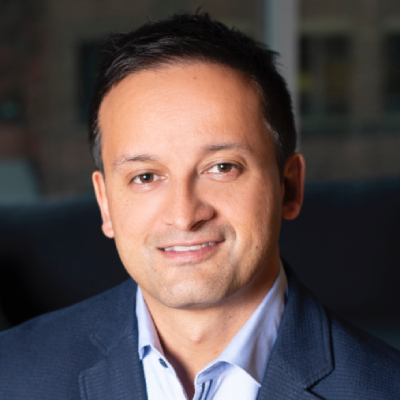How insurtechs can close deals and move the dial: Q&A with Marcus Daniels
Featuring

Marcus Daniels, Founding Partner and CEO, Highline Beta
Read commentary from Torys for the latest legal and industry trends in our article “Parametric insurance: the future of insurtech?” And for more industry insights, read our in-depth Q&A featuring Michael George, CEO, Tokio Marine Canada.
Insurance is an industry often noted as hard to get into. What are your three top pieces of advice for founders just starting out?
Focus on specific differentiation. This is naturally critical given how many seed-stage insurtech startups are creating a noisy environment. For example, we’re seeing a lot of Canadian product-centric startups get momentum by focusing on the U.S. market from day 1—via corporate collaborations and specific commercial development initiatives. These include Relay Platform, which was acquired by At-Bay (Cyber), Walnut Insurance (Embedded), Flora Fertility, and BuildCaptive.
Founders should aim to engage executives in areas where their biggest pain points exist and find ways to remove friction for these executives so that they can get to pilot. For example, climate and cyber risks have been top of mind for insurance executives, so founders who are building products that can deal with these pain points should know their audience and clearly showcase to them how they can help.
Insurtech startups must understand that, in this environment, enterprise sales are 90% discovery and project management work and 10% sales. So, getting budget approval is increasingly difficult, and the only way to get a pilot mandate is to invest in the multi-stage project management work to close the deal.
As a hybrid corporate VC studio, you work with founders from launch and with established executives to integrate technology into their organizations. Where are you seeing the biggest opportunity for partnership between these two kinds of businesses in the insurance industry?
There are many different insurtech categories with pre-Series B startups driving innovative solutions, but a few categories that are leading the way include infrastructure, distribution, climate, AI and cyber.
The insurance industry is still early in digitizing its operations by updating its legacy infrastructure systems, and this is needed before the next phase of startup-corporate innovation can really make an impact. The biggest opportunities revolve around finding the right wedge on the fringe of core insurance innovation and the growth adjacency of specific use cases.
What are the most common misconceptions you see when speaking to corporations about integrating, or investing in, new technology?
Years ago, there was a misconception that insurtechs were going to completely disrupt and get rid of the agent. What we’re seeing is that a lot of insurtechs are supporting and helping to digitalize the agency channel. The agent isn’t an unnecessary middleman. Rather, they present an opportunity to build new business models that sell through agents to improve easy-to-do tasks and create more win-win business.
Have you seen more of an appetite for innovation from insurance corporations? If so, what is fueling this?
Yes, there is more appetite for innovation. This is because we are still in the early stages of the insurance innovation cycle, and there is a real need to solve fundamental problems in areas of climate and cyber insurance.
The application of Generative AI is still very nascent and will dramatically fuel more digital transformation in the insurance industry. There was a lot of hype and venture capital dollars in B2C insurtechs that required a lot of capital to acquire customers or for reserves on the balance sheet. We're seeing more interest in B2B insurtechs with new value propositions.
Marcus Daniels is a Founding Partner & CEO of Highline Beta, a hybrid corporate venture studio & VC firm that builds & funds new ventures from inception. He has 26+ years as a serial tech entrepreneur & operating executive with a top decile pre-seed investing (50+ startups) track record. Formerly the Co-Founder & CEO of HIGHLINE VC and Managing Director of Extreme Startups, Marcus continues to evolve venture studio models to help leading corporations grow beyond their core. He holds an MBA from the Smith School of Business at Queen's University and a BA from McGill University.
To discuss these issues, please contact the author(s).
This publication is a general discussion of certain legal and related developments and should not be relied upon as legal advice. If you require legal advice, we would be pleased to discuss the issues in this publication with you, in the context of your particular circumstances.
For permission to republish this or any other publication, contact Janelle Weed.
© 2025 by Torys LLP.
All rights reserved.